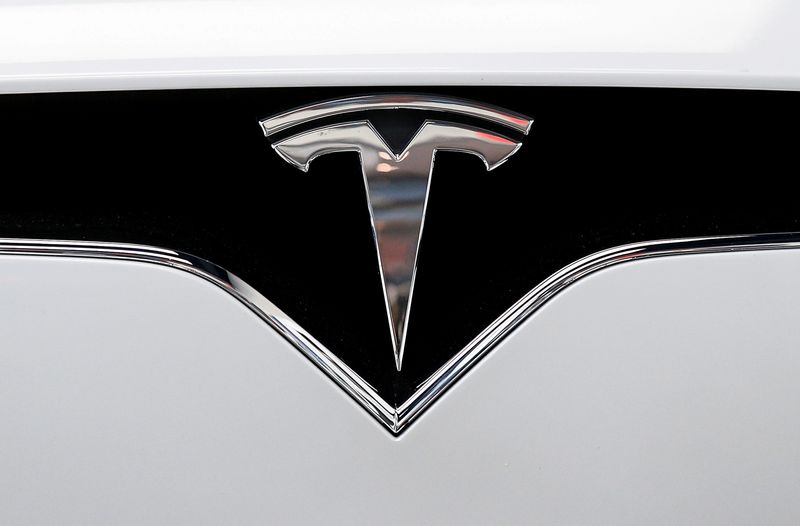(Reuters) - Tesla (NASDAQ:TSLA) Inc is pioneering a new battery manufacturing process called dry electrode coating that it is applying to its new 4680 battery cells.
The dry process, which Tesla obtained via its 2019 acquisition of California startup Maxwell Technologies, replaces a traditional, complicated step of battery manufacturing that involves coating the electrode foil with a wet, chemical slurry.
The coated foil needs to go through a lengthy drying process before final assembly, and the toxic solvents used in the slurry need to be recovered and disposed of.

The electric vehicle maker has said the dry coating process has the potential to dramatically reduce the size, cost, energy consumption and production cycle time of battery manufacturing plants, while boosting the energy density and power of battery cells.
Besides Maxwell, other companies working on dry coating include California-based LiCap Technologies and Massachusetts-based AM Batteries.